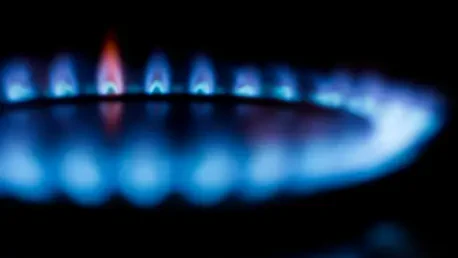The ongoing geopolitical tensions have sharply intensified the European Union’s efforts to transition away from Russian energy dependence. Following Russia’s invasion of Ukraine in 2022, the EU is taking decisive steps to end Russian gas and liquefied natural gas (LNG) imports by 2027. This complex shift is more than a geopolitical maneuver—it is a critical and strategic endeavor aimed at bolstering energy sovereignty across the European continent. As the EU forges this new path, opinions from energy experts, policy analysts, and industry leaders illuminate the multifaceted challenges and opportunities intrinsic to these changes.
A New Era in European Energy Strategy
Over recent years, the dependency of many European countries on Russian gas became increasingly contentious. Historically, Russia was a dominant supplier, commanding a substantial share of EU gas imports—about 45%. The current political landscape has compelled the EU to reduce this share, which now stands at 19%. Policy analysts emphasize the importance of this reduction in ensuring the EU’s energy autonomy. Legal experts have underscored that the European Commission’s proposals to halt new Russian gas deals signify a significant intent to reshape energy security. This strategic initiative has forced EU member states to reassess and recalibrate their current energy policies.
Strategic Shift in Energy Policy
Redefining Natural Gas Supply Chains
To phase out Russian gas, the EU has sought to reconfigure and diversify its supply chains. Legal structures are being crafted to end imports under existing spot contracts by 2025, with long-term agreements ceasing by 2027. Industry experts caution that these changes are fraught with legal complexities. Renegotiating long-standing contracts without incurring penalties raises pressing concerns, as the EU still imports substantial volumes of Russian pipeline gas and LNG. Energy sector specialists point to the intricate balance needed to avoid destabilizing the gas market while achieving these ambitious goals.
The Role of LNG and Supply Diversification
The EU is increasingly turning toward alternative LNG suppliers as a pivotal strategy. Analysts highlight the shift in trade patterns that could potentially emerge from these decisions, presenting both opportunities and challenges for the EU market. The transition to diversified supply sources is not only seen as a step toward energy security but also a catalyst for innovative technological and logistical developments. Energy market observers discuss the crucial role these shifts will play in enhancing security by reducing reliance on any single external supplier—a narrative woven into the broader commitment to diversification.
The Uranium Angle – Extending the Energy Debate
Another significant facet involves targeting Russian enriched uranium imports. This aspect opens up a wider discourse on EU energy independence. Some member states operate Russian-designed reactors, relying heavily on Russian-imported uranium. While alternatives are being sought, including new supply contracts, experts acknowledge that shifting away from these imports is not a quick process due to extensive lead times. This strategic angle poses challenges but also prompts broader consideration of the sustainability of disassociating from Russian energy sources.
Inter-European Dynamics and National Energy Strategies
Varied dependencies across member states create a diverse tapestry of national strategies. For countries like Hungary and Slovakia, which still rely heavily on Russian energy, transitioning poses specific challenges. Analysts explore how these national strategies may affect the cohesion of EU energy policy, emphasizing the need for synchronizing efforts to maintain a collective EU stance. Member states are crafting individualized energy strategies, reflecting unique dependencies and political landscapes, shaping the broader European narrative.
Turning Strategy into Action
This transition requires agility and proactive policy implementation across all stakeholders involved. Experts suggest that governments, industry players, and policymakers urgently focus on aligning their objectives with the EU’s ambitious energy goals. Recommendations extend to crafting innovative legal frameworks to mitigate potential risks associated with contract renegotiations. Comprehensive coordination would be necessary, coupled with technological and infrastructural advancements, to pivot effectively toward new energy paradigms.
The Path Forward in Energy Independence
Reflecting on the EU’s strategic energy shift offers crucial insights into long-term impacts. Lessons learned underline the pivotal role of energy independence in preserving geopolitical stability—an imperative underpinned by ongoing innovation and collaboration. This journey toward energy sovereignty demands continuous, transformative initiatives that uphold sustainability and unity, highlighting an exceptional resolve to overcome external pressures. Such measures prove vital in fostering a resilient energy landscape, steering toward sustainable solutions conducive to European autonomous growth.









